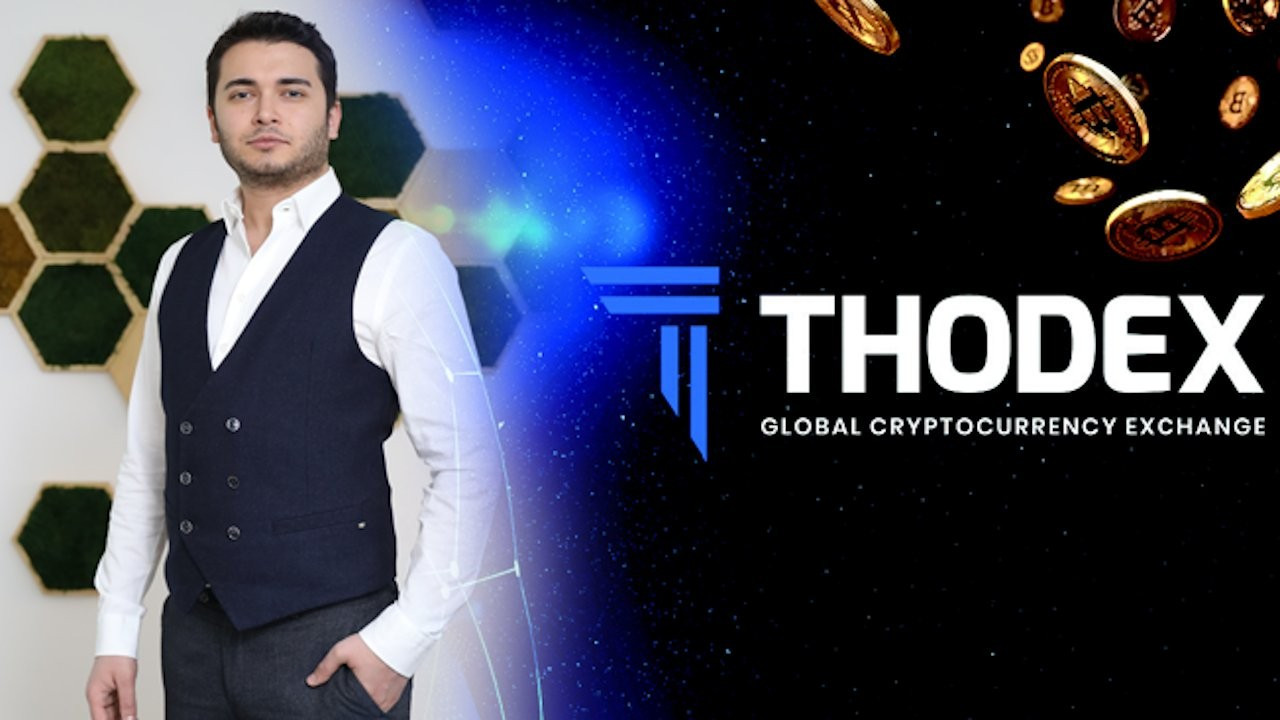Turkey detains 62 people in cryptocurrency trading firm probe
Turkish police on April 23 detained 62 people in connection with an investigation into cryptocurrency trading platform Thodex. Interpol issued a red notice for the company's CEO, with Turkey calling for his extradition from Albania. Meanwhile, opposition parties have criticized the government for not establishing appropriate safeguards for investment in crypto-assets before, emphasizing the necessity of an immediate financial regulation.
Duvar English - Reuters
Turkish police have detained 62 people in an investigation of a cryptocurrency trading platform provider, state-run Anadolu news agency said on April 23, after thousands of Turks filed criminal complaints saying they had been scammed.
The Thodex cryptocurrency trading platform, which had been handling daily cryptocurrency trade worth hundreds of millions of dollars, said on its website on April 22 it would be closed for four to five days due to a sale process.
But users who have not been able to withdraw money or access their accounts voiced concern on Twitter that they may have been defrauded, comments widely picked up by Turkish media.
Prosecutors issued arrest warrants for 78 people and 62 had so far been detained in an operation centered on Istanbul but stretching across eight provinces, Anadolu Agency said.
Istanbul police said the company's founder and CEO, Faruk Fatih Özer, had flown to the Albanian capital Tirana on April 20.
Following Turkey's application, Interpol issued a red notice for Özer, while Interior Minister Süleyman Soylu phoned his Albanian counterpart Bledar Cuci for the CEO's extradition.
Özer released a statement on his Instagram on April 22, hours after reports of his disappearance caused an uproar.
"Reports that surfaced on April 22 of my leaving the country with $2 billion belonging to 391,000 people are completely untrue," Özer said.
The Thorex founder confirmed his departure from Turkey and said that he had left to conduct meetings for the purchase of the company as a result of high demand, in line with the official company statement.
The Istanbul Chief Public Prosecutor's Office said on April 22 said it launched an investigation into Thodex due to claims that the platform had led to the "aggrievedness of many citizens." Turkey's financial crimes investigation board MASAK blocked the company's accounts and began an investigation, a MASAK source said.
Thodex said "negative" media reports about it were untrue, and that banks and funds - which it would identify later - wanted to invest in the company and had proposed a partnership.
The 24-hour trading volume on Thodex was $538 million on its last trading day, according to Coinmarketcap.
Last week Turkey banned the use of crypto assets for payments, adding to factors that sent bitcoin down 14% at the weekend. Turkey's Central Bank cited "irreparable" damage and transaction risks as reasons for the ban.
On April 23, it surfaced that Özer co-owns another company named "Hoppara" with the son of a Nationalist Movement Party (MHP) lawmaker.
Daily Cumhuriyet reported that Özer and MHP lawmaker Saffet Sancaklı's son Mert Sancaklı had on Sept. 28, 2020 established the company which provides a virtual wallet service that enables users to receive digital currency and monitor their balance.
MHP MP Sancaklı refused to comment on the issue to daily Cumhuriyet.
Meanwhile, opposition parties have criticized the government for not establishing appropriate safeguards for investment in crypto-assets before, emphasizing the necessity of an immediate financial regulation.
Main opposition Republican People's Party (CHP) Çetin Osman Budak said that as the crypto sector has no legal infrastructure and inspection mechanism in Turkey, it includes many risks. He said that his party had submitted a parliamentary motion with regards to this issue in previous years, but their efforts obtained no result.
CHP MP Sezgin Tanrıkulu recalled that they had submitted a parliamentary motion in 2018 asking the government if it was working on a legal framework to regulate cryptocurrency activities.
The then-Deputy Prime Minister Mehmet Şimşek had answered the CHP's motion by saying citizens "needed to be aware of negative situations while undertaking procedures with regards to crypto activities."
"At the time we had said that people's expectations should not be exploited by people who establish a random company. Three years later, our predictions, unfortunately, came out true," Tanrıkulu said.

 Turkish cryptocurrency exchange Thodex founder flees Turkey with $2 blnEconomy
Turkish cryptocurrency exchange Thodex founder flees Turkey with $2 blnEconomy Turkish Central Bank bans use of cryptocurrencies for goods and services paymentEconomy
Turkish Central Bank bans use of cryptocurrencies for goods and services paymentEconomy Turkish gov't eyeing crypto assets, requests user data from local exchange platformsEconomy
Turkish gov't eyeing crypto assets, requests user data from local exchange platformsEconomy